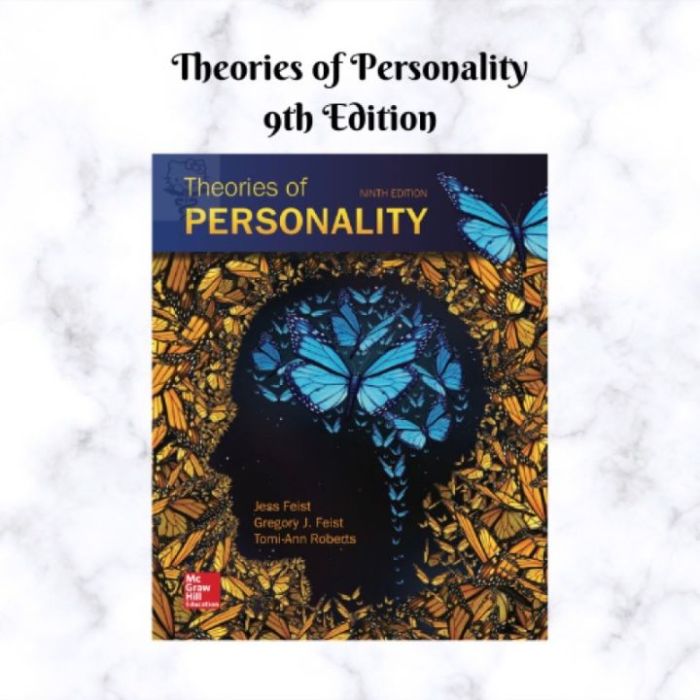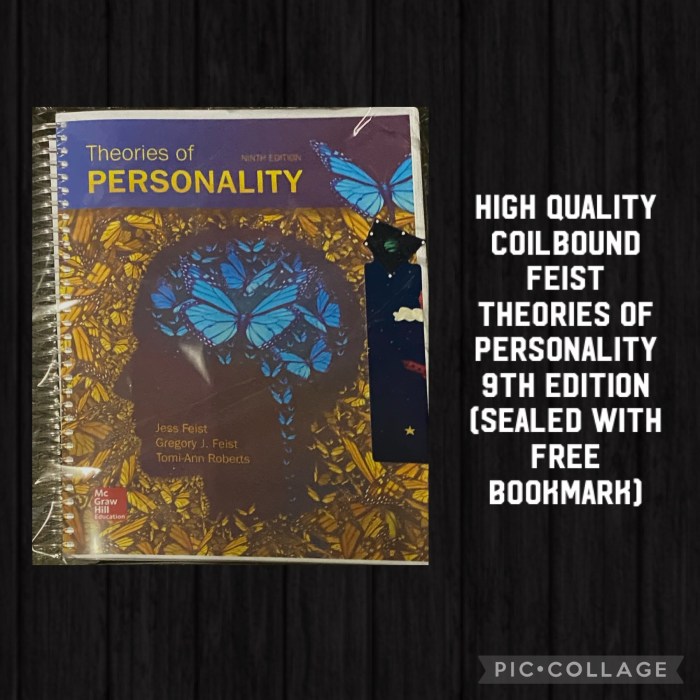An introduction to theories of personality 9th edition – In the realm of psychology, personality stands as a multifaceted concept, shaping our thoughts, behaviors, and interactions. Embarking on an in-depth journey through “An Introduction to Theories of Personality, 9th Edition,” we delve into the historical roots and diverse perspectives that have shaped our understanding of this complex construct.
This seminal work traces the evolution of personality theory, from its early beginnings with Wundt, James, and Freud to the influential contributions of behaviorism and humanism. By examining the key assumptions and principles of psychodynamic, behavioral, and humanistic approaches, we gain a comprehensive understanding of the diverse ways in which personality has been conceptualized and studied.
Historical Perspectives on Personality Theory: An Introduction To Theories Of Personality 9th Edition

The study of personality has a rich history, with roots in philosophy, medicine, and psychology. Early contributors to the field include:
- Wilhelm Wundt(1832-1920): Developed the first experimental psychology laboratory and introduced the concept of introspection.
- William James(1842-1910): Founded the school of functionalism, which emphasized the importance of studying the mind in terms of its function in everyday life.
- Sigmund Freud(1856-1939): Developed the theory of psychoanalysis, which proposed that unconscious processes and conflicts shape personality.
In the 20th century, behaviorism and humanism emerged as influential forces in personality theory:
- Behaviorism: Emphasized the role of learning and environmental factors in shaping behavior and personality.
- Humanism: Emphasized the importance of free will, personal growth, and the uniqueness of each individual.
Timeline of Major Developments in Personality Theory
| Date | Development |
|---|---|
| 1879 | Wilhelm Wundt establishes the first experimental psychology laboratory. |
| 1890 | William James publishes The Principles of Psychology. |
| 1900 | Sigmund Freud publishes The Interpretation of Dreams. |
| 1913 | John B. Watson publishes “Psychology as the Behaviorist Views It.” |
| 1943 | Abraham Maslow publishes A Theory of Human Motivation. |
| 1951 | Carl Rogers publishes Client-Centered Therapy. |
